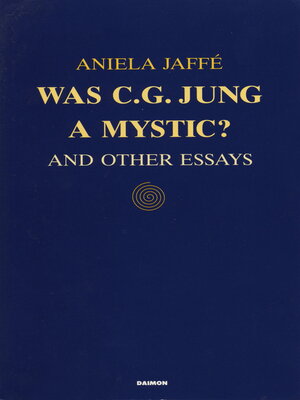
Sign up to save your library
With an OverDrive account, you can save your favorite libraries for at-a-glance information about availability. Find out more about OverDrive accounts.
Find this title in Libby, the library reading app by OverDrive.



Search for a digital library with this title
Title found at these libraries:
| Library Name | Distance |
|---|---|
| Loading... |
C.G. Jung, the father of analytical psychology, explored the realms of thought and intuition. He devoted many years to an in-depth study of alchemy and closely observed the range of the occult; he was interested in anthropology and in nuclear physics. He liked to consider himself a scientist.
But was Jung a "mystic"? Aniela Jaffé, his editor, collaborator and confidante, addressed this question and others in her last book of essays.
One of the most distinguished interpreters of C.G. Jung’s ideas, Aniela Jaffé was born in Berlin and studied psychology at the University of Hamburg. With the outbreak of World War II, she emigrated to Switzerland and soon began to train with the psychiatrist C.G. Jung. Frau Jaffé’s reputation as a lucid and authoritative writer was established through her collaboration with Jung on his autobiographical 'Memories, Dreams, Reflections', her editing of his collected 'Letters', and numerous independent works, including 'The Myth of Meaning'. She practiced as an analyst in Zurich until her death in 1991.







